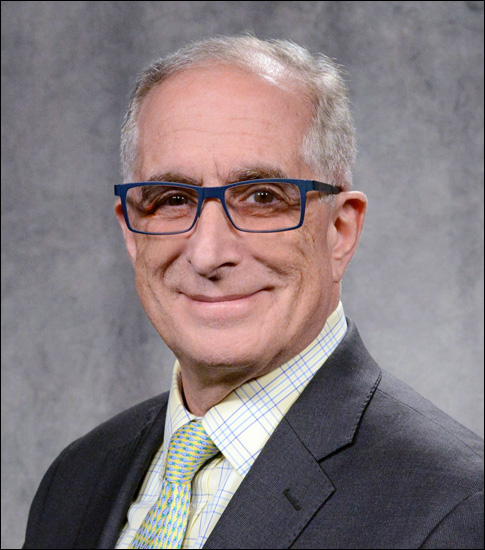John M Abowd

ACM Policy Award
USA - 2023
citation
For transformative work in modernizing the US Census Bureau's processing and dissemination of census, survey and administrative data, exemplifying privacy-aware management of government-collected data
As Professor of Economics, Statistics and Data Science at Cornell University and as Chief Scientist at the U.S. Census Bureau, John Abowd led numerous initiatives to transform and modernize the privacy of the nation's key data infrastructure, leading to more accurate and accessible data for policymakers, researchers, and government. In what the director of the Census Bureau called "the biggest improvement to statistical confidentiality practices since Fellegi's work in the early 1970s," Abowd led the architecture and implementation of formal differential privacy techniques to increase statistical accuracy and strengthen the privacy protection of government-collected data. In doing so, his work set new standards for the responsible stewardship of citizen data.
The decennial census data serves as the nation's largest data infrastructure and is used as the basis for academic research, key economic indicators, and to determine the apportionment of representative seats in U.S. Congress, the drawing of voting districts, and the allocation of over a trillion dollars of federal funding annually. Consequently, the privacy of citizens from whom data is collected as well as the accuracy of the resulting datasets, are crucial for informing public policy, allocating governmental resources, and conducting scientific research.
The confidentiality of this data is strictly protected through federal statutes that have been in place for more than 100 years; subsequently, access to and publication of granular-level data is highly restricted and data is only released in aggregate form. However, increasingly sophisticated computational techniques and advances in information reconstruction science have made it possible to de-anonymize aggregated data, rendering traditional privacy protection techniques inadequate. This was demonstrated in a carefully managed "white hat" attack by Abowd and his team, indicating that it was possible to reconstruct and reidentify millions of individuals from the publicly available 2010 Census data tables. Furthermore, the lack of transparency surrounding the statistical methodologies used by the Bureau for data protection created particular challenges for inferential research because the statistical bias in estimating aggregate quantities can only be corrected if the data generation process is known.
In response to these threats, drawing from differential privacy theory, Abowd implemented multiple systems at the Census Bureau to modernize methodological initiatives around data sharing and statistical confidentiality. In early work, he led the development of confidentiality protection systems using formally private methods for several innovative data products and tools, including the OnTheMap application, which expanded access to granular data that traditional statistical disclosure limitation methods precluded. This enabled researchers and government agencies to unlock, link, and share sensitive data sets for research and policy efforts. Later in 2016, as Chief Scientist at the Bureau, Abowd led a team of computer scientists, economists, demographers, and engineers to architect and deploy a new Disclosure Avoidance System for the 2020 Census.
The research and policy impact of this work is profound. It has a significant impact on the availability of data that underpins policy decisions for U.S. citizens; data sets that could not previously be published due to confidentiality restrictions are now protected and shareable, enhancing evidence-based policymaking and data equity. There are now also clear privacy guarantees and transparency about the statistical methods employed to facilitate more accurate inferential statistical research. In short, as a result of Abowd's innovation and particularly his leadership, a critical source of data regarding our nation's citizens is now more accurate, representative, better protected, and accessible to policymakers, government agencies, academic researchers, in the U.S. and beyond.
It should not go without notice that in addition to the technological innovation and policy impact of Professor Abowd's work, many have made specific mention of his remarkable courage, integrity, and ethical commitment in the face of considerable political pressure at the Census Bureau, among various stakeholder groups, and in the media during this modernization process. One of his nominators said:
"As co-inventors of differential privacy and as researchers of privacy attacks -we were floored by Abowd's intellectual courage. In addition to the technical difficulties in designing a differentially private algorithm to provide sufficiently accurate estimates of billions of statistics, Abowd's course of action required wrangling a federal bureaucracy, mobilizing computer scientists, economists, and engineers, and engaging with a vast community of data users, from state demographers to redistrictors to academicians to entrepreneurs whose businesses rely on Census products."
Another noted:
"John is, quite simply, a hero. His influence on critical policies has been truly remarkable. [He has] distinguished himself as a discerning computational researcher and a tireless builder of computational systems, but also as an astute strategist, and, above all, a public servant of unshakable principles-even when the stakes for the country and the pressures on him could hardly have been any higher."
In short, Professor Abowd's transformational contributions at the Census Bureau have revolutionized privacy protections for individual citizens, broadened access to more granular data, enabled transparency of methodological techniques, increased the statistical accuracy of research, and assured more representative datasets to inform critical policy and resource decisions for our nation. Beyond government agencies, policymakers, and researchers, his work benefits millions of citizens who lacked representation in government institutions.